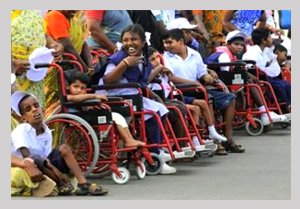|
| Intellectual Disability impacts adaptive skills, these refer to how well a person can deal with the tasks of everyday life. These include the ability to speak and understand; self-management skills (dress, bathe, feed or otherwise care for themselves, manage job responsibilities, manage money); use of community resources; leisure, self-care, and social skills (empathy, social judgement, inter-personal communication, ability to make and retain friendships); self-direction; basic academic skills (reading, writing, and arithmetic); and work skills. A child is only considered to have Intellectual Disability if he/she displays deficits in both IQ and adaptive behaviour. He/she is not considered to have Intellectual Disability if only one of the two is present. |


